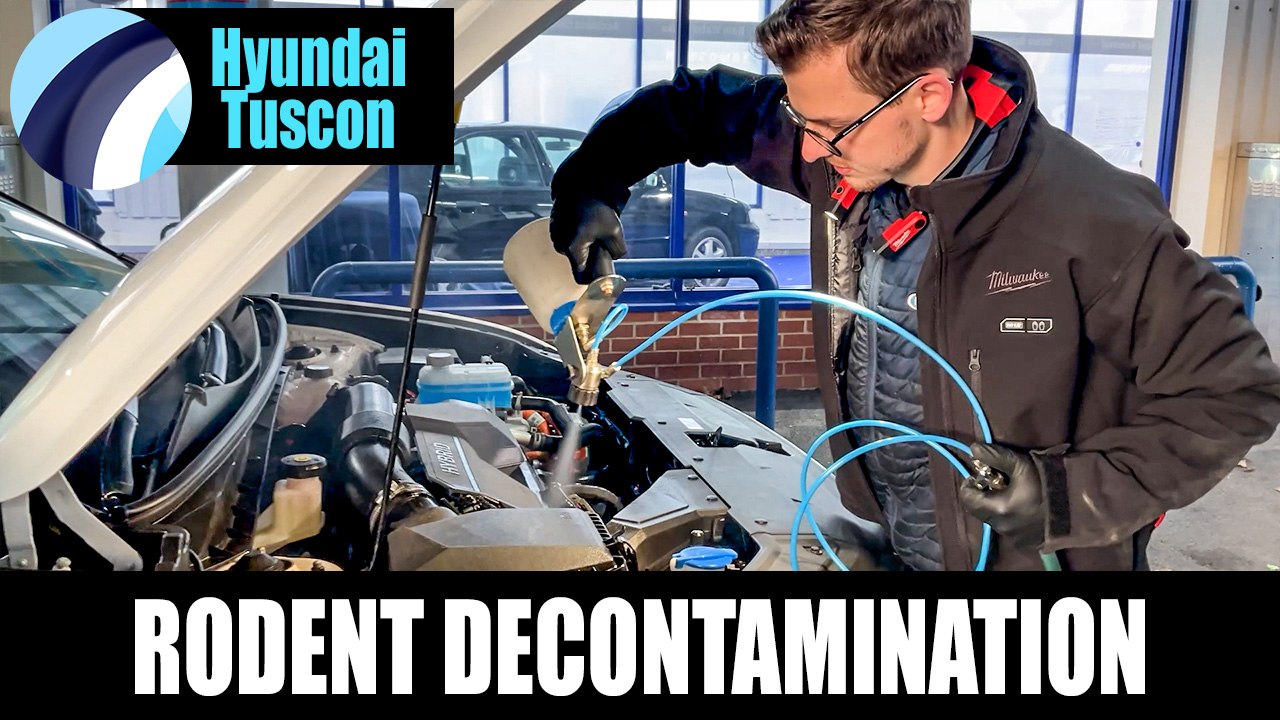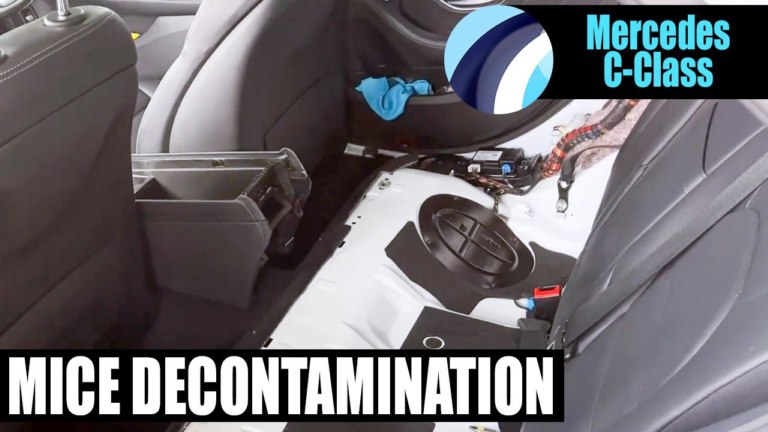Rodent contamination - Hyundai Tuscan Video

This Hyundai Tuscan was brought to us with rodent contamination, which appears to be rats.
We recently had a car come in that had been the unlucky victim of a rodent infestation. The customer complained that it was a non-starter, and it didn’t take long to see why. Droppings, chewed foam, and gnawed wiring were found both in the cabin and under the bonnet.
Our first step was a full inspection, inside and out. We used inspection cameras to look into all the warm, hidden places rodents like to nest -- wheel arches, engine bay, under trays. No actual nest turned up, but we did find plenty of damage, including chewed cables that had immobilised the van.
Next came fogging. We used an antimicrobial treatment to disinfect the engine bay, interior, boot and under the seats. This is essential when dealing with urine and droppings that can carry pathogens. Seats and trims came out, carpets were lifted, and the interior was checked thoroughly for contamination. Fortunately, the rodents hadn’t moved inside the cabin, so it was just a case of cleaning and decontamination.
An auto electrician repaired the damaged wiring, the vehicle was reassembled, vacuumed, tested, and given a clean bill of health. Finally, we prepared a detailed estimate for further decontamination and inspection, so the customer knew exactly what was required.
Rodent infestations can be more than just a nuisance, they can put a vehicle completely out of action. That’s why early detection, thorough inspection, and proper repair are absolutely vital.
Do you have a car which has been attacked by rats, mice or squirrels? We have an article which answers questions such as should you claim on your insurance.
Related Videos
Here are some more of our latest #Rodents videos
Mercedes C-Class Mice Decontamination
This Mercedes C-Class had been invaded by mice, contaminating the car by getting into the ventilation, headlining, under the panels and carpets.
Watch Video
Can We Help You?
"We can offer specialist advice on the best car service to suit your requirements"
When bringing your car to New Again, we often ask you to explain exactly the reason for having your car Protected, Valeted or Repaired. Once we understand exactly what it is you are trying to achieve, we will appraise your vehicle using our detailed appraisal check-sheet allowing us to identify areas of concern and tailor specific services that match your requirements and budget.
If you are not sure what service you need and would like to speak to one of our technicians, simply request a callback by filling in the form on our contact page.

Share this blog